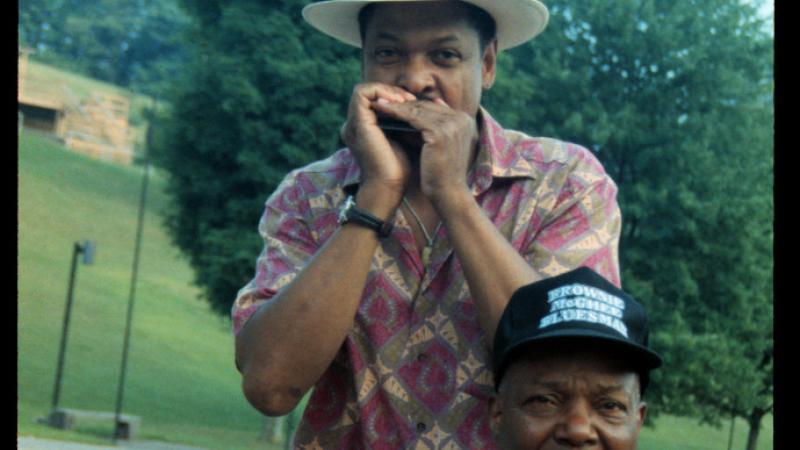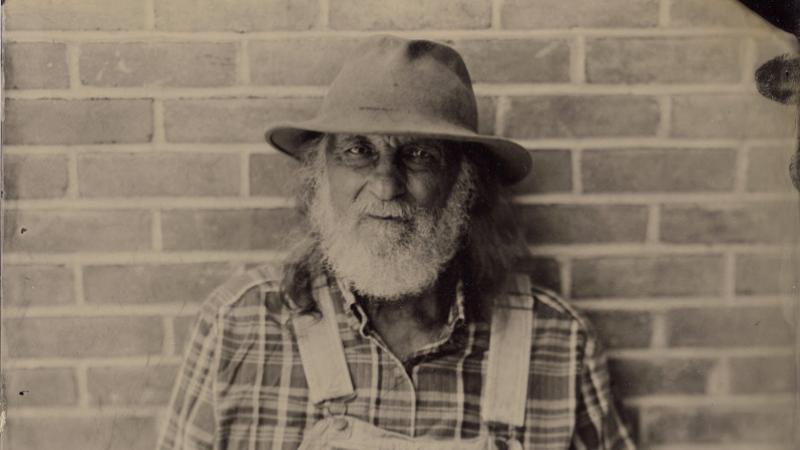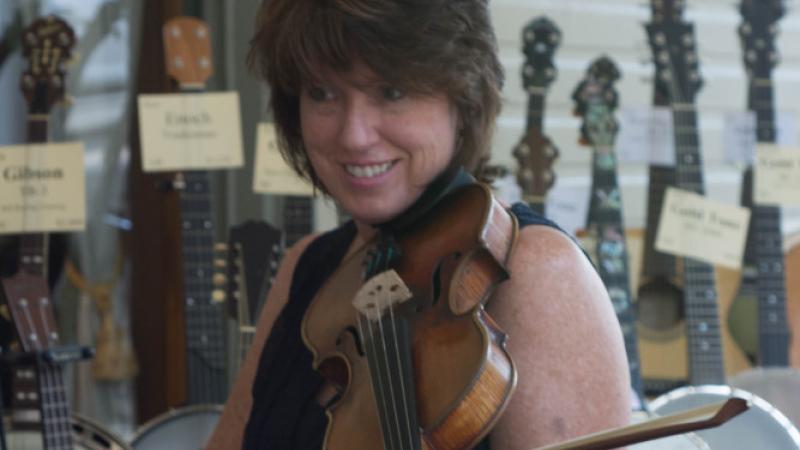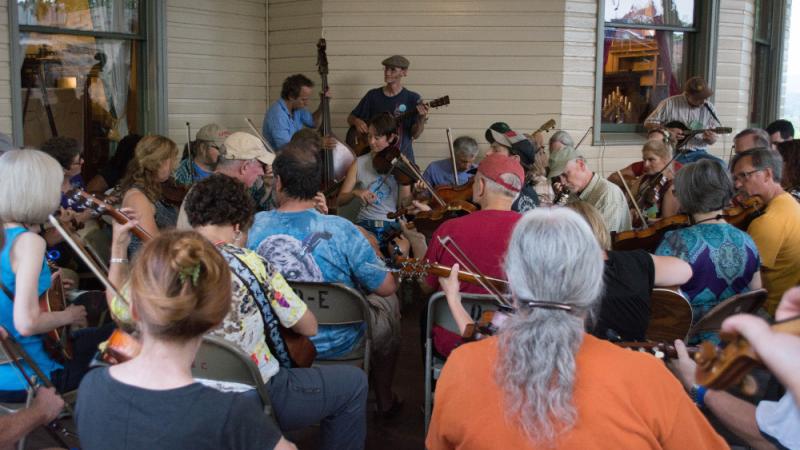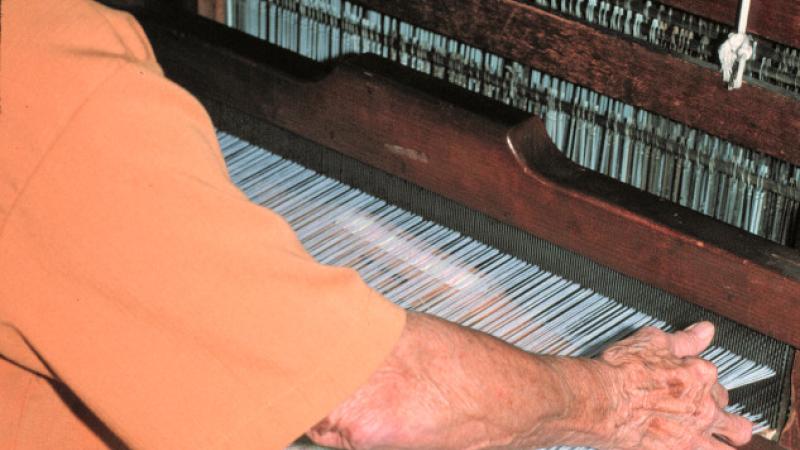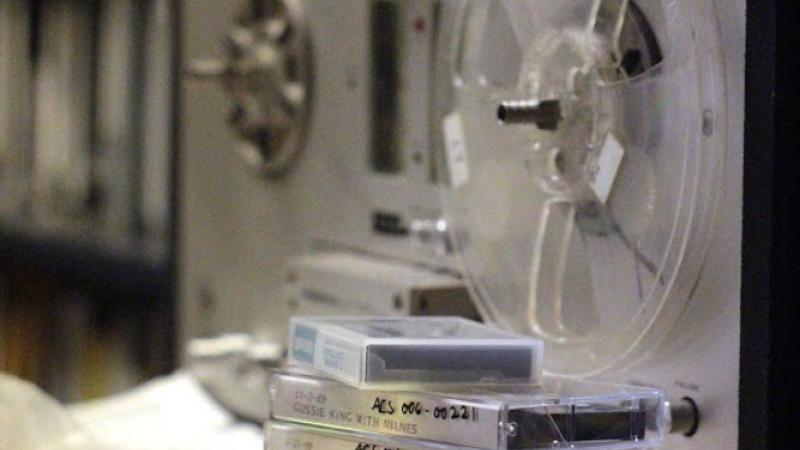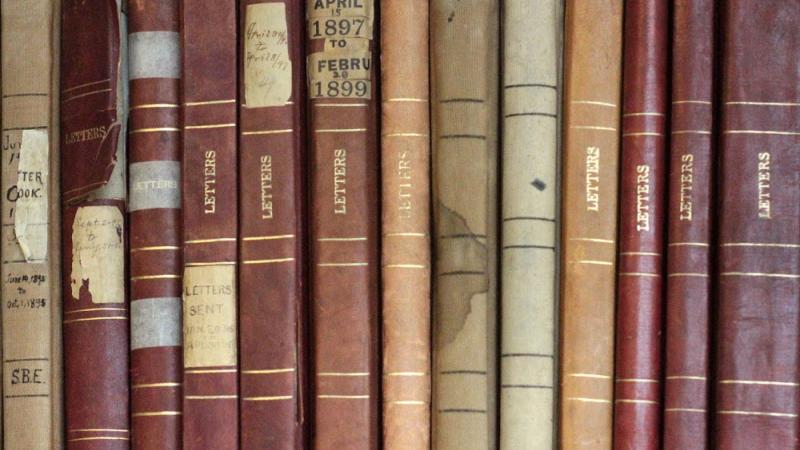Keeping Tradition Alive: Taking Steps to Preserve Appalachian Folk Culture
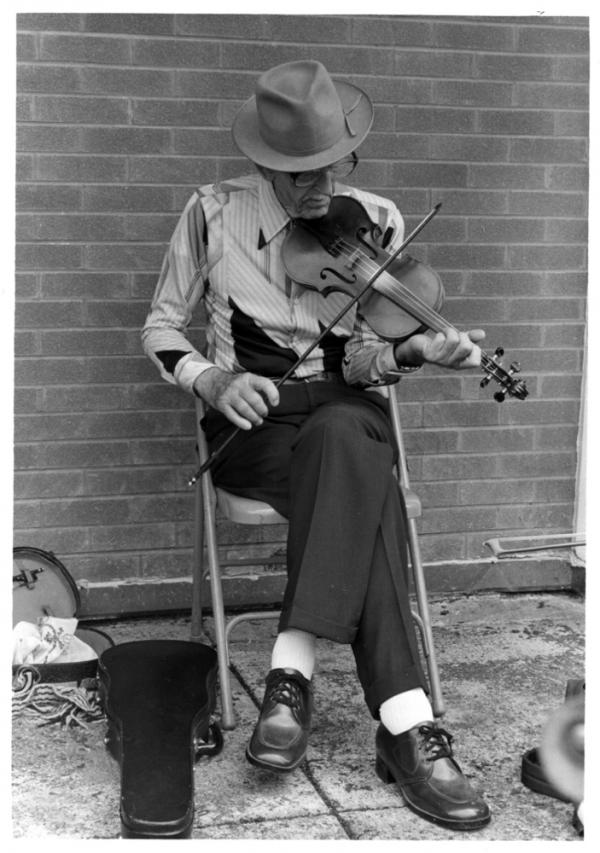
Photograph of Ernie Carpenter at Augusta Heritage Center of Davis & Elkins College in 1981. Photograph by Marte Clark.
Courtesy Augusta Archive of Folk Culture, Davis & Elkins College.

Photograph of Ernie Carpenter at Augusta Heritage Center of Davis & Elkins College in 1981. Photograph by Marte Clark.
Courtesy Augusta Archive of Folk Culture, Davis & Elkins College.
For many years, historians of the United States all but ignored the cultural contributions of Appalachia, the large region stretching along the Appalachian Mountains, with West Virginia at its heart. Often dismissed and stereotyped by outsiders, the people of Appalachia have nonetheless produced rich and unique forms of music, dance, folklore, food, literature, and art. The region has historically been home to natives and immigrants from many backgrounds, their traditions incorporated into a regional culture that has deeply influenced wider American history. The birthplace of bluegrass music, flat foot mountain dancing, hand-woven mountain coverlets, white oak basket weaving, and other unique forms of folk art and music, Appalachia forms an essential spoke of American history and culture.
Unfortunately, this vibrant history is often preserved on vulnerable media. Davis & Elkins College, located in the mountain town of Elkins, West Virginia, is taking steps to preserve many gems of Appalachian music, art, and dance contained in its library collections. With support from NEH’s Preservation Assistance Grants for Smaller Institutions (PAG), the college has hired a consultant to complete a preservation assessment of its special collections and recommend steps to preserve these materials.
One of Davis & Elkins College’s principal holdings, the Augusta Collection of Folk Culture, contains audiovisual materials documenting over 40 years of traditional Appalachian music and dance, much of it produced by the Augusta Heritage Center. Named for Virginia’s early settlement, the Augusta Heritage Center began in 1973 as a summer program focused on preserving Appalachian heritage traditions. Relocated to Davis & Elkins College in 1981, the center continues to draw crowds to public programs on music, dance, craft, and folklore, including theme weeks on Bluegrass, Old-Time Vocal, American Vernacular Dance, and Early Country Music. It sponsors “Pickin’ in the Park,” weekly old-time and bluegrass jam sessions held year-round and an Appalachian Studies program that includes classes on Flatfooting & Clogging and Appalachian Folklore. The Augusta Collection also includes many of the sound recordings, films, and videotapes, produced by the center, as well as donated field recordings, photographs, and oral histories.
The “Fiddler’s Reunion” tapes, for example, document annual gatherings of previously unknown traditional fiddlers from across West Virginia since 1993. These tapes are just part of the college’s much larger video, audio, and photographic holdings related to the Augusta Heritage Center’s annual workshops, concerts, dances, and festivals. The library’s collections also encompass even older materials: mid-1970s audio recordings of the Currence Hammond Family’s songs, ballads, fiddle and banjo tunes, and stories, as well as field recordings of traditional musicians and singers at historically significant festivals in West Virginia, Virginia, North Carolina, and Kentucky beginning in 1957. Among these recordings are some of the earliest public presentations of local musicians who have since come to be regarded as “national treasures”; they include rare recordings of shape-note, Old Regular Baptist, and Primitive Baptist sacred singing; field recordings of blues music from the state’s coal fields; and early recordings of the West Virginia Folk Festival.
In addition to its music recordings, the center’s oral history and archival collections showcase the depth and breadth of Appalachian folk culture. For instance, videotaped interviews from the 1990s document the history, culture, and folk life of the “Helvetia” community in central West Virginia, descendants of mid-19th century Swiss farming migrants. Davis & Elkins College also preserves oral histories collected by students in its Appalachian Studies program, as well as donated recordings documenting the forced removal of communities for dam-building projects in West Virginia. Finally, the Augusta Collection includes records of a local traditional weavers’ guild as well as hundreds of still photographs of West Virginia folk life including buildings, gravestones, fences, folk art, and more.
In addition to this treasure trove of audiovisual materials, the library also holds manuscript and material culture collections. The Comstock Collection originally belonged to newspaperman James Franklin “Jim” Comstock (1911-1996) and includes original manuscripts and correspondence from Nobel Prize-winning author Pearl S. Buck, whose childhood home in West Virginia is a national historic landmark. The College Archives includes records from United States Senators Henry Gassaway Davis (1823-1916) and Stephen Benton Elkins (1841-1911), for whom the college is named. And the Stirrup Gallery collections include history and material culture objects of early America such as books pertaining to Abraham Lincoln and objects owned by prodigious collector Hosea M. Darby: pre-Revolutionary cast iron cookware, colonial metal and glassware, and 19th- century spinning equipment.
Preserving such mixed holdings represents a complex challenge for the staff of the library. Manuscript and archival materials and historical objects must be stored in appropriate containers, on specialized shelving, and in specific climate conditions to prevent their deterioration. Even more at-risk are the audiovisual materials. While these provide a vibrant record of Appalachia’s music and folk culture, they are among the most vulnerable pieces of our collective past. Saving recorded sound and moving images is a daunting challenge: tapes lose their magnetism, video recordings quickly deteriorate, and digital media like DVDs can be scratched beyond play if not stored properly. Mike Casey, a preservation expert from Indiana University, has recently characterized media preservation as a “gathering storm” because of the large number of sound and video recordings across the country, their significant research value and vulnerability to obsolescence and degradation, and the short time window we have to save them.[1] The survival of collections documenting Appalachian history and culture at Davis & Elkins College, including these irreplaceable audiovisual materials, depends in large part on proper storage and planning.
In recognition of this ongoing challenge, last year the college sought and obtained a Preservation Assistance Grant from the National Endowment for the Humanities. The award will enable a preservation specialist from the Northeast Document Conservation Center in Andover, Massachusetts, to visit the college’s library to assess the policies, practices, and conditions affecting the care and preservation of its collections. The consultant will also prepare a list of recommendations for future preservation actions.
Since 2000, the NEH has made approximately 1,900 PAG grants to libraries, museums, historical societies, archival repositories, cultural organizations, town and county record offices, and colleges and universities in all fifty states, to help preserve and care for significant humanities collections. PAG awards enable cultural repositories like the library at Davis & Elkins College to hire consultants to do preservation assessments. They also support the purchase of preservation supplies and equipment; the development environmental monitoring and disaster plans; and education and training for staff.
The next deadline for Preservation Assistance Grants for Smaller Institutions is May 3, 2016; please check out our guidelines and contact the Division of Preservation and Access if you have any questions!
[1] Mike Casey, “Why Media Preservation Can’t Wait: The Gathering Storm.” https://www.avpreserve.com/papers-and-presentations/mike-casey-why-media-preservation-cant-wait-the-gathering-storm/
